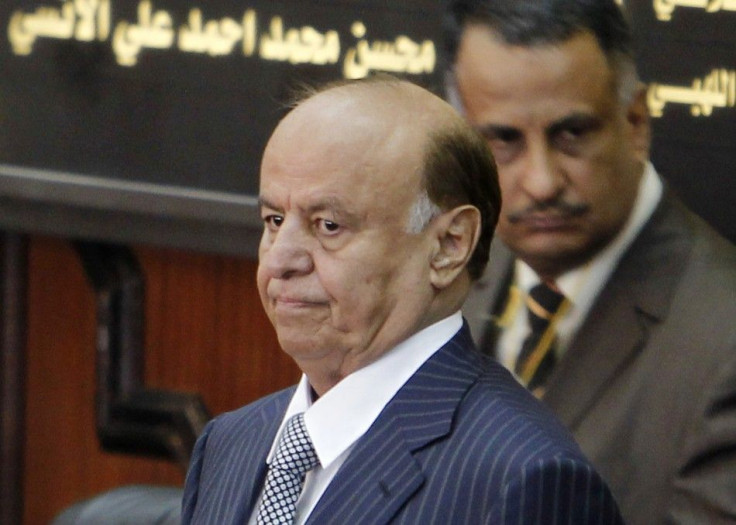Yemen Bombing Kills 26 As New President Sworn In

More than two dozen people have died and 30 injured in a suicide car bomb attack in the southern Yemeni city of Mukalla, according to reports.
The attack came shortly after a new president Abdrabbuh Mansour Hadi took the oath of office. Hadi succeeds Ali Abdullah Saleh, who ruled Yemen for more than three decades.
The bomb was detonated near a presidential palace -- most or all of the 26 victims were believed to be members of the elite Republican Guard.
Al-Qaeda took credit for the attack, telling the Reuters news agency that it was done in retaliation for the Republican Guards' crimes.”
However, there has been no independent confirmation that the Islamic militant group was really behind the killings.
Hadi's election clearly has many Yemenis unhappy since he was the only candidate running in the poll and he was endorsed by Saleh, whom Yemenis have demonstrated against for almost the past year and ultimately forced out of power. Hadi also served as vice president under Saleh.
On Monday, Saleh will formally transfer power over to Hadi in a formal ceremony.
The Republican Guard is an elite squad of Yemen’s national army under the command of Saleh's son, Ahmed.
The election was violent, featuring clashes that killed at least nine people mostly in the restive southern part of the impoverished nation. Al-Qaeda has been active in this lawless region for years, but so have a number of separatists groups – all of whom were united by their opposition to Saleh.
In a speech broadcast to the nation, Hadi vowed to fight Al-Qaeda.
If we don't restore security, the only outcome will be chaos, he said.
Hadi, who hails from the south himself, takes a somewhat more conciliatory stance with the separatists, with whom he has promised dialogue.
© Copyright IBTimes 2024. All rights reserved.











